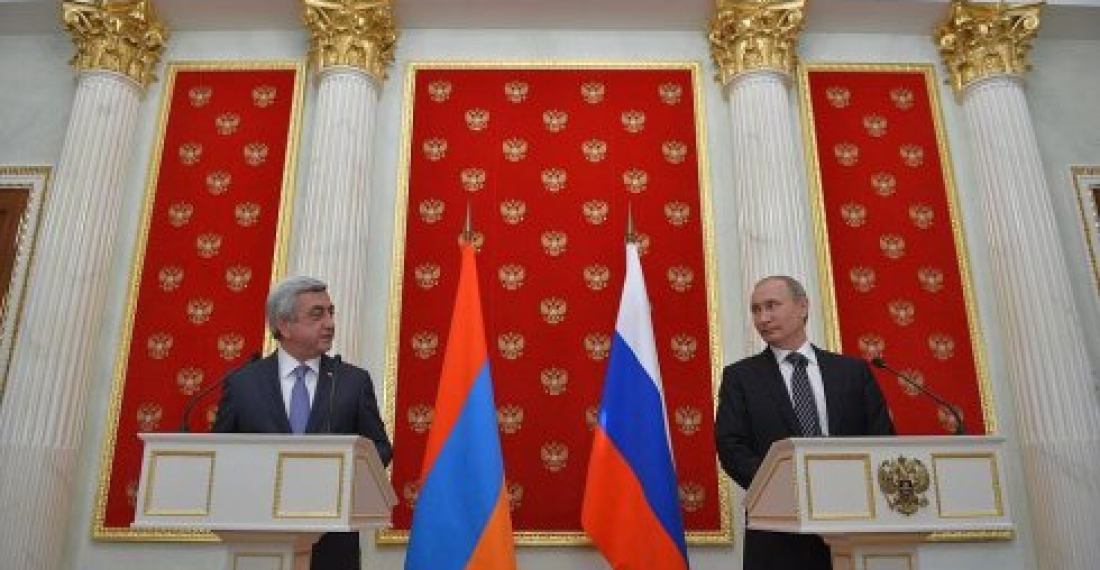President Putin of Russia has spelled out his vision of an Armenia and an Azerbaijan at peace with each other after a resolution of the Karabakh conflict. Putin was speaking in Moscow at a press conference on Wednesday (10 August), following talks with the Armenian president Serzh Sargsyan.
Vladimir Putin said that Russia was interested in decreasing tensions in relations between its neighbours. "We will continue doing all we can to help undo the Karabakh knot in the framework of the OSCE Minsk Group and through direct contacts with Yerevan and Baku. We hope that Armenia and Azerbaijan will be able to settle their disagreements through compromise - without winners and losers."
Answering a question from an Armenian journalist the Russian President added:
"I believe that both Armenia and Azerbaijan really want to find a way out of this situation in order to live in peace and harmony, to cooperate, and to grow their respective economies. Armenia is also interested in removing all infrastructural and economic restrictions in order to develop its economy, improve life for its people, and consolidate the Armenian state. This is our goal, the goal of a settlement. And the goal is to achieve these results.
Azerbaijan has similar goals. My recent contacts with President Aliyev in Baku bear this out. However, it is necessary to find approaches and arrangements where, as I mentioned, no one feels like a winner or a loser. There must be a solution developed by the leaders of Armenia and Azerbaijan that is accepted by the societies of both countries. That is the most important thing. Russia, as well as other countries of the Minsk Group, could act as a guarantor, and adopt corresponding UNSC resolutions, if necessary."
President Putin dismissed criticism that Russia was fuelling the conflict by selling large ammounts of weapons to Azerbaijan. He said,
"As for the weapons, we have a programme on this with Armenia. Armenia is a CSTO member and our ally. We have certain mutual obligations, and Russia has always kept its obligations, has always fulfilled them.
In today's arms market, any country can buy almost any weapon. A country such as Azerbaijan, an oil-producing country of almost 10 million people with a fast-growing economy, as well as sufficiently large gold and currency reserves can, of course, buy weapons anywhere it likes. You see? Anywhere. However, I would rather not focus on the military side of things now. If we want to resolve this problem, we should use peaceful means."
source: commonspace.eu with kremlin.ru
photo: President Putin and president Sargsyan addressing journalists after their meeting in Moscow on Wednesday 10 August 2016 (picture courtesy of the press service of the president of Russia






